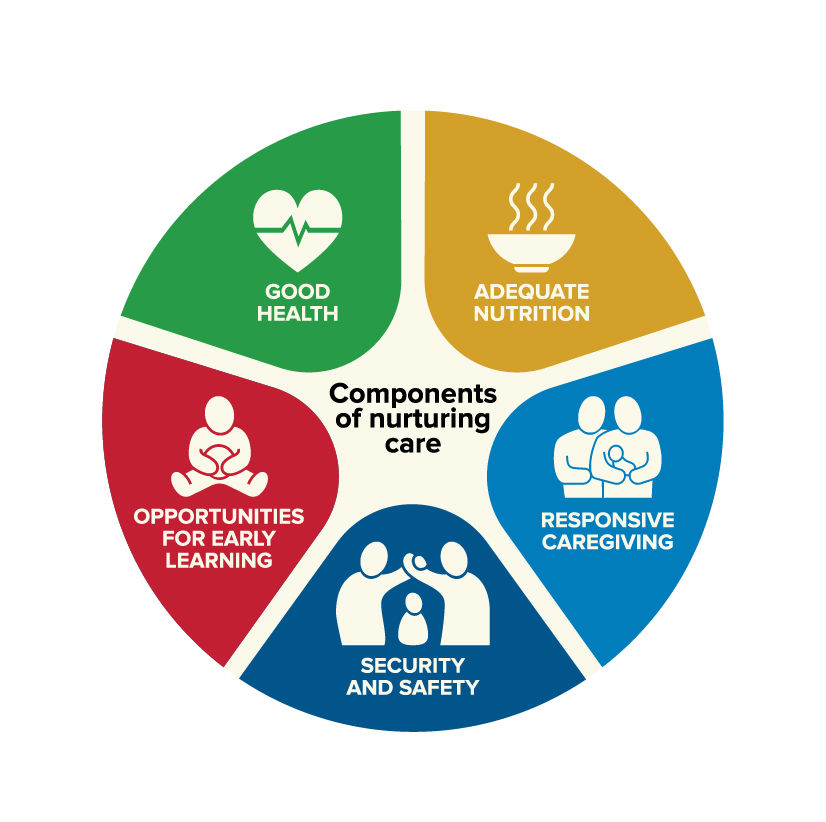Guided by the last will and testament of our founder, the Conrad N. Hilton Foundation has an explicit directive to “Be ever watchful for the opportunity to shelter little children with the umbrella of your charity… For, as they must bear the burdens of our mistakes, so are they in their innocence the repositories of our hopes for the upward progress of humanity.“
Early childhood development (ECD) is the focus of our Young Children Affected by HIV and AIDS Strategic Initiative, and while our work in this area is targeted in five countries in East and Southern Africa, we recognize the need to increase investments in ECD all over the world.
In the last 15 years, the scientific and economic evidence on ECD has increased significantly. It is now widely accepted that investing in ECD is one of the best investments a country can make to eliminate extreme poverty, as it is essential for children to grow, thrive, and become productive members of their societies.
In 2015, the Sustainable Development Goals determined that by 2030 all children should have ‘access to quality early childhood development, care and pre-primary education.’ By that same year only about a third of countries had adopted multi-sectoral policies on early childhood development, and there have been very slight increases in funding.
Since then, the World Bank has identified early childhood development as a key area of investment, and the G20 Development Working Group recently identified early childhood development as a key focus area for the first time this year. The Early Child Development Action Network has been launched and will partner with the G20 to move the ECD agenda forward.
This May, we saw another significant victory for global adoption of ECD practices when the World Health Organization (WHO) launched the Nurturing Care Framework for Early Childhood Development. This framework seeks to change how we raise infants and toddlers.

Research tells us that children’s brains may not develop fully when they don’t receive “nurturing care,” which includes good health, adequate nutrition, safety and security, responsive caregiving, and opportunities for stimulation and learning. The period from birth to age three is a critical window of opportunity, since 80 percent of the brain forms during these years.
The Framework is a much needed roadmap for action to support the development of the youngest children and their caregivers. The Framework calls for a ‘whole of government’ and ‘whole of society’ approach to strengthen the Nurturing Care of young children and is unequivocal about the need for coordination across all sectors.
The Framework makes a strong case for why efforts to improve health, wellbeing and human capital must begin during pregnancy to age three and it highlights the special role that the health sector has in providing nurturing care during this period. While maternal and child health and nutrition services are not news areas for the health sector, the opportunity to include parenting support to address responsive caregiving and stimulation is. Ministries of Health are already taking action to better address the development of young children and the framework aims to continue progress by outlining the strategic actions, targets and milestones that are essential.
About 250 million young children in low- and middle-income countries lack nurturing care. Tens of millions of children in the United States and Europe face similar challenges. Early childhood intervention programs could transform these children’s lives and help them achieve their full potential.
The launch of the Nurturing Care Framework is a major sign that we are moving forward – it gives important visibility to the issues, actions and opportunities planting early childhood development firmly within the overarching health agenda for the first time. The Hilton Foundation is proud to be playing a role in this movement, and my hope is that the launch of the Nurturing Care Framework will serve to accelerate this work and the work of other leaders who have been quietly shaping the revolution in early childhood development throughout the world.